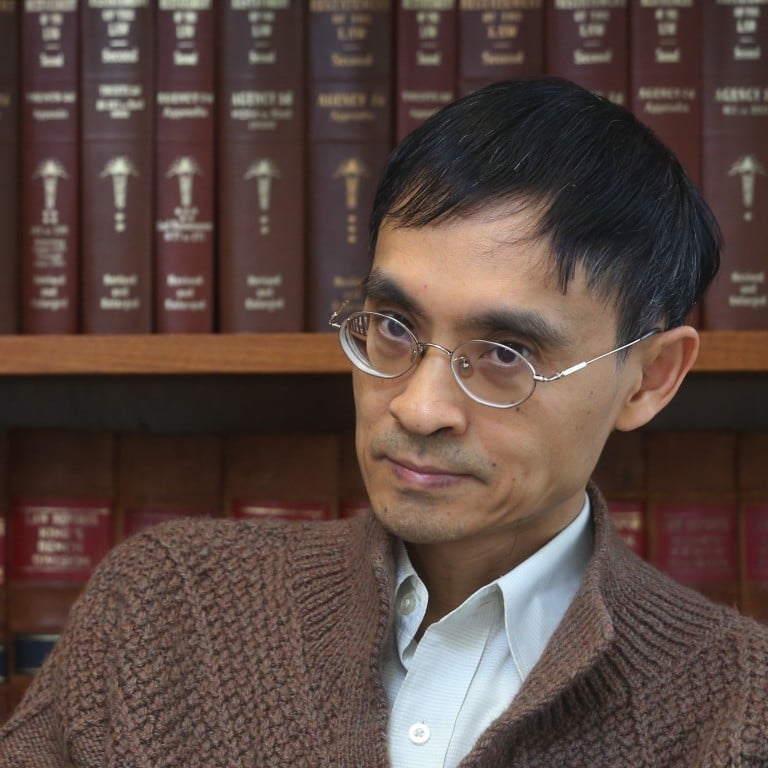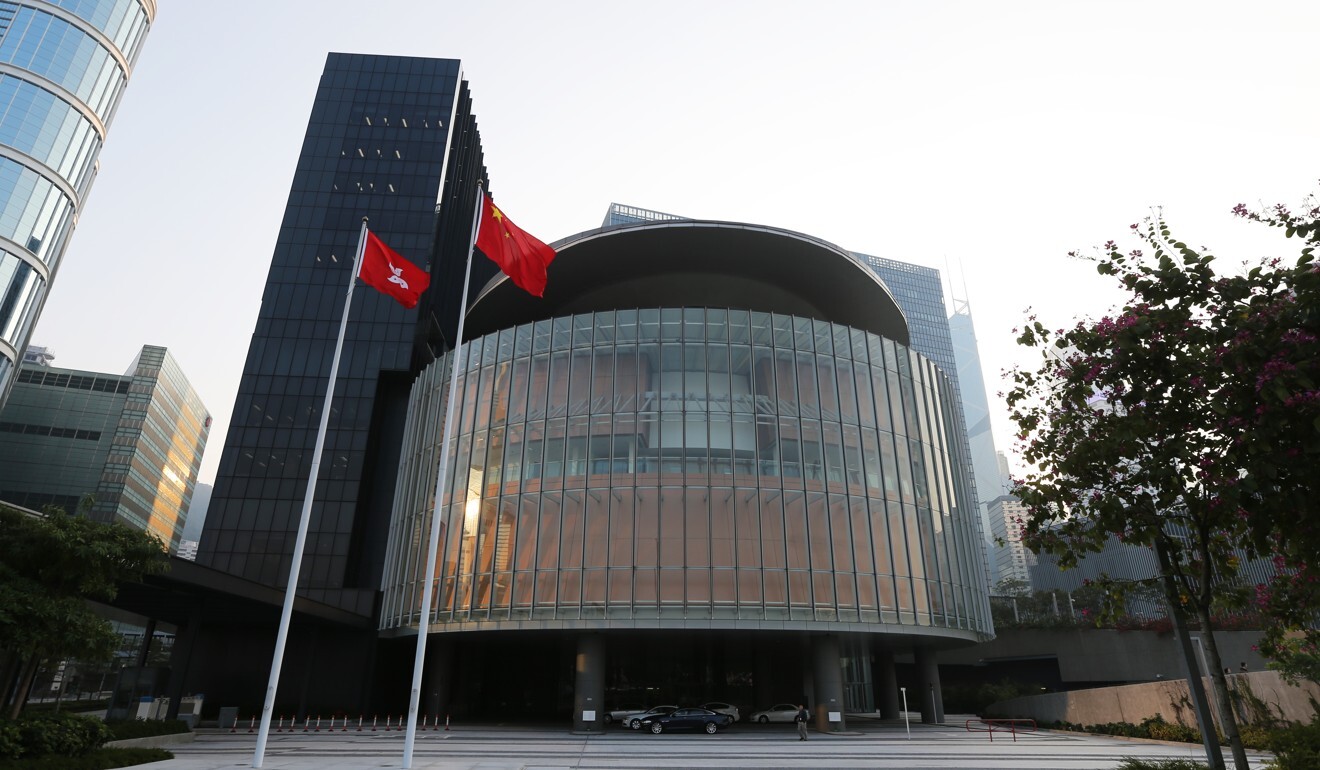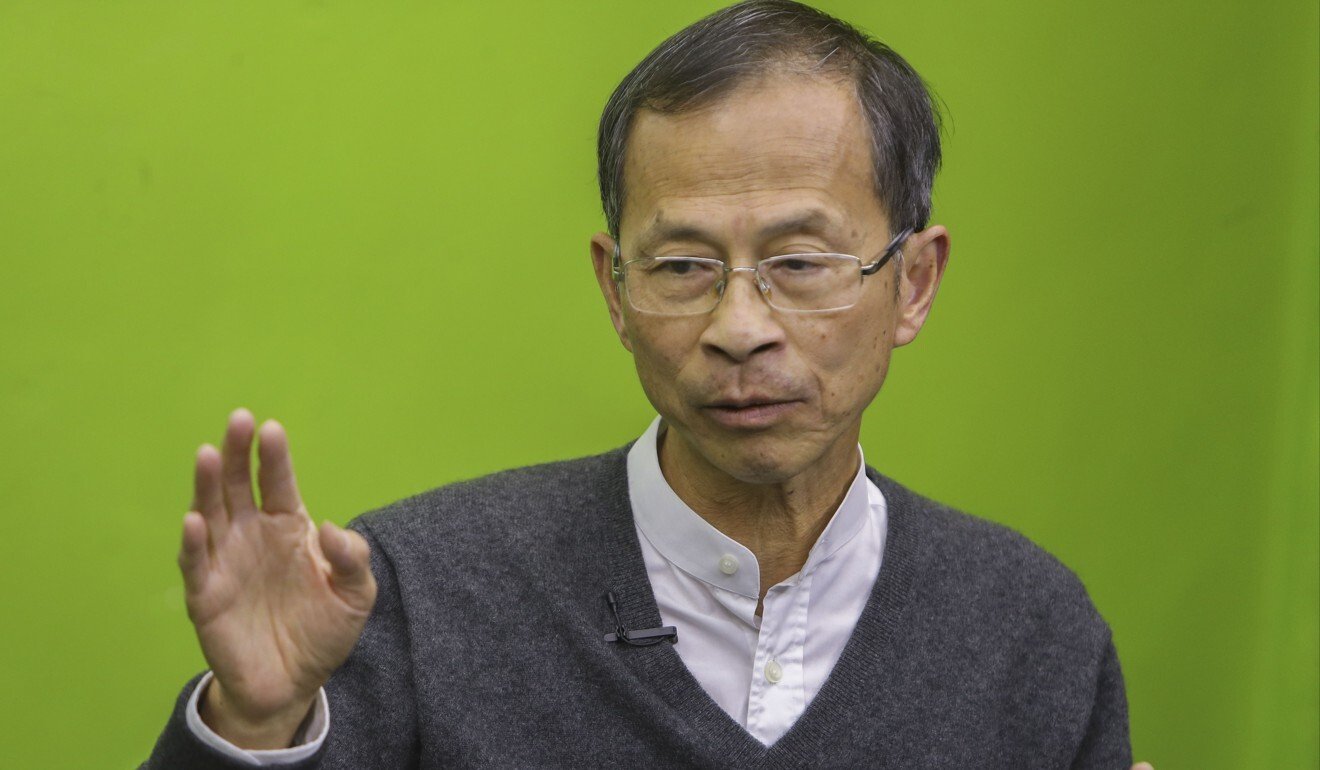
Leading legal adviser says Beijing offices right to criticise opposition lawmakers
- Professor Albert Chen, a member of the Basic Law Committee, argues Article 22 covering the central authorities’ role in the city must not be narrowly interpreted
- The ‘admonition’ over the legislature’s failure to pass bills is justified given it goes to the heart of effective governing
Beijing authorities were acting within their right to warn Hong Kong opposition lawmakers against paralysing proceedings in the legislature, which was a “scandalous” failure of governing that had already led to “significant malfunctioning” of the body’s constitutional role, a leading legal expert said.
Professor Albert Chen Hung-yee, who advises Beijing as a member of the Basic Law Committee, also backed the central government’s view the central government’s liaison office and the Hong Kong and Macau Affairs Office (HKMAO) did not breach Article 22 of the city’s mini-constitution. It states none of Beijing’s departments can interfere in the affairs Hong Kong administers on its own.

“The Hong Kong courts have pointed out that the Basic Law should not be interpreted merely literally and narrowly. Provisions should be interpreted purposively and in their context,” Chen told the Post on Saturday. “Adopting the proper approach to the interpretation of Article 22, I do not think it is a breach of the article for the HKMAO and liaison office to make the recent statements or comments.”
Beijing’s liaison office says it has right to handle Hong Kong affairs
Chen was speaking after the liaison office denied accusations it was interfering in local affairs in a strongly worded statement issued on Friday. It was the second time this week the office commented on the power Beijing exerts over the city and comes as both political camps fight for control over Legislative Council’s House Committee. It scrutinises bills introduced into the council and decides when they are put to a final vote.
Lawmaker Dennis Kwok from the opposition Civic Party has presided over the meetings in the absence of a chairman since October and his fellow pan-democrats have blocked the election of a new one.

The two offices have slammed the pan-democrats for filibustering, but they counter the criticism is interference in the city’s affairs. The liaison office escalated the row on Friday when it said the two agencies were not circumscribed by Article 22.
Chen said the central authorities had a duty to supervise the implementation of the Basic Law, which included establishing a legislature that operated effectively.
The public will suffer if Legco row drags on
For opposition lawmakers to filibuster in the House Committee was “scandalous and a matter of grave public concern”.
“The paralysis of Legco’s normal legislative function is clearly detrimental to the public interest, and a significant malfunctioning of the constitutional role which the Basic Law assigns to Legco,” Chen said.
“In these circumstances, I consider it legitimate for the central authorities, acting through the HKMAO and liaison office, to issue an admonition and to draw the public’s attention to this matter.”

Former Legco president Jasper Tsang Yok-sing has also weighed into the row. In a video message posted on the Master Insight media site on Friday, Tsang said the pan-democrats had made it clear they were trying to stop legislation that included the national anthem bill.
In November 2017, China’s top legislative body inserted the mainland’s national anthem law into Annex III of the Basic Law, requiring the local government to adopt its own legislation on the matter.
“Whichever way you enact the law is [Hong Kong]’s own matter. But when someone has paralysed Legco to stop the national anthem law, how could the central people’s government turn a blind eye to that?” Tsang said.
Cora Chan Sau-wai, a constitutional law scholar at the University of Hong Kong, disagreed with her colleague Chen and Tsang. She pointed to a subsection under Article 22 that stated all offices set up in Hong Kong by the central government “shall abide by the laws” of Hong Kong. That position has been accepted by the city’s government.
“Because all offices set up have to abide by Hong Kong laws, which include the Basic Law, that will mean the liaison office is without doubt covered by the non-intervention principle,” Chan said.
“It also depends on the intensity of their criticisms. What the Chinese government said is beyond expressions of concern and are very strongly worded and come with concrete criticisms. These are acts of putting pressure on Hong Kong, which carried special weight.”
A government spokesman said the liaison office and its personnel shall abide by Hong Kong laws and the Basic Law. He reiterated the two offices were not interfering but only raising legitimate concerns, which was “in full compliance” with the constitutional order.

